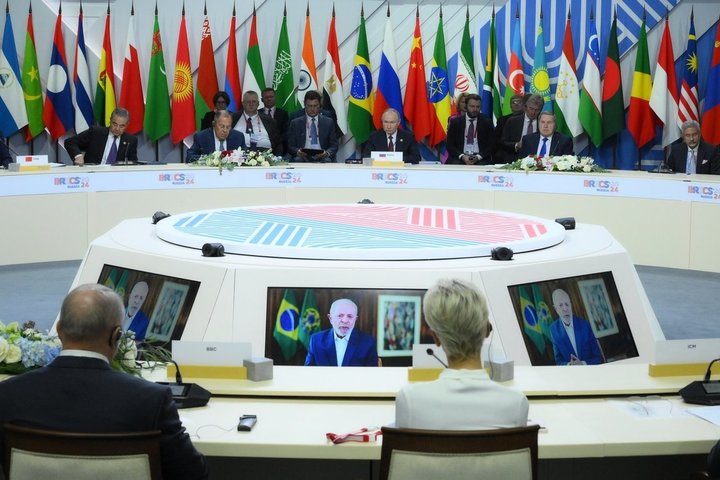Experts on the role of BRICS: the US economy stops being useful for the world
Russia's proposals to create a number of platforms to support national economies were called “great ideas”
Russian President Vladimir Putin outlined the threat of a new global crisis while speaking at the BRICS Summit in Kazan. At the same time, the association itself demonstrates stability and economic growth due to the countries of the global South and East, he emphasised. The new platforms proposed by Russia can further strengthen the national economies of the union's member countries and its potential partners. “BRICS countries can offer investors real projects for making money, and not, like the West, inflated paper financial instruments that will soon depreciate,” experts say.
“BRICS interacts with each other much less effectively than with rich countries”
Speaking at the BRICS Summit, Vladimir Putin noted that world trade and the global economy as a whole are undergoing significant changes. At the same time, the centre of business activity is gradually shifting towards developing markets.
“A multipolar model is being formed, which is launching a new wave of growth, primarily due to the countries of the global South and East and, naturally, the BRICS countries,” the Russian president stressed and added that the economies of the association's countries are demonstrating stability, “In most of the association's countries, accelerated growth rates are expected in the medium term.”
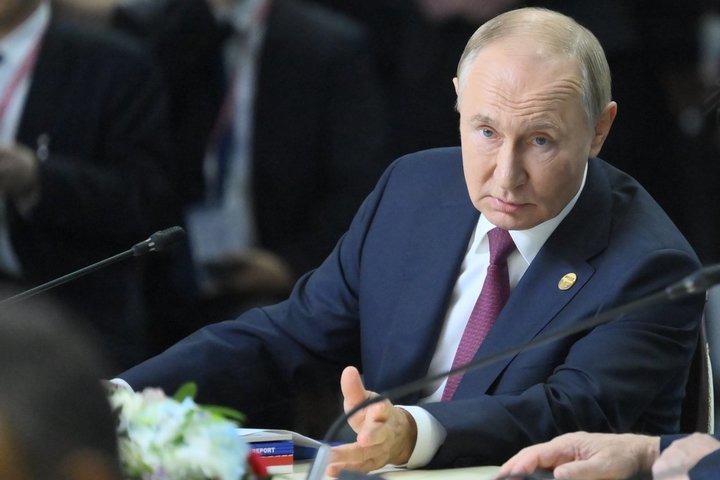
Thus, the average growth of the BRICS economies in 2024-2025, according to him, will be 3.8% with an increase in global GDP of 3.2-3.3%. The share of the countries of the association in terms of purchasing power parity by the end of this year will reach 36.7%, which exceeds the share of the G7.
“The unipolar model was arranged colonially. The metropolis develops, the rest stagnate. The multipolar model is anti-colonial — it allows the countries of the global South to grow,” says political scientist, Professor at the National Research University Higher School of Economics Oleg Matveychev.
Economist Rustem Shayakhmetov also agrees with the redistribution of roles in the world. According to him, the global South is now beginning to gradually equalize living conditions: “The pace of development of the countries of Southeast Asia allows us to say that, for example, China is gradually moving towards the level of average development, and in terms of innovative development, it actually occupies a leading position. And therefore, yes, the roles have changed, but this multipolarity of the world in itself is not a factor in economic development; for this, first of all, the development of countries and their priorities is needed.”
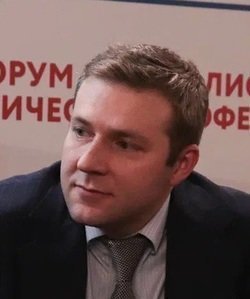
At the same time, according to him, it is still unclear how the BRICS countries can interact with each other in such a way as to increase each other's capitalisation. For example, Russia, possessing not only minerals but also educational resources could attract students from the union's countries to study in-demand specialties. “Brazil could probably be a good source of food security and so on. But so far we do not see any clear steps in this direction, so it seems to me that talking about some kind of wave being launched is still a political exaggeration,” the speaker believes.
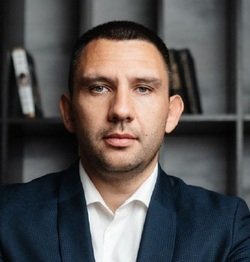
According to the expert, now the population of Indonesia reaches 250 million people, there is unsatisfied demand: “These markets are wonderful, if you create some semblance of market economies there, that is, roughly speaking, when you lack high-quality finishing in each apartment, any plant for the production of tiles, toilets, sanitary ware, plumbing will be in great demand. From this point of view, yes, the world's economic growth will continue due to the consumption of young economies, including the global South, Asia, etc. The population size determines the future of the economy.”
During the summit, various speakers repeatedly said that it is unacceptable to use the US currency to put pressure on other countries. “The dollar is used as a weapon — this is a big mistake of those who do this,” said the head of the Russian state highlighting that our country is not fighting the dollar as such, but is looking for alternatives to it.
“It seems to me that everyone should understand that the longer we live and work by someone else's rules and on someone else's platforms, the longer this transition to a new, fairer economic and financial system will last, and it may be accompanied by major upheavals, including those that we are seeing,” the Russian president noted.
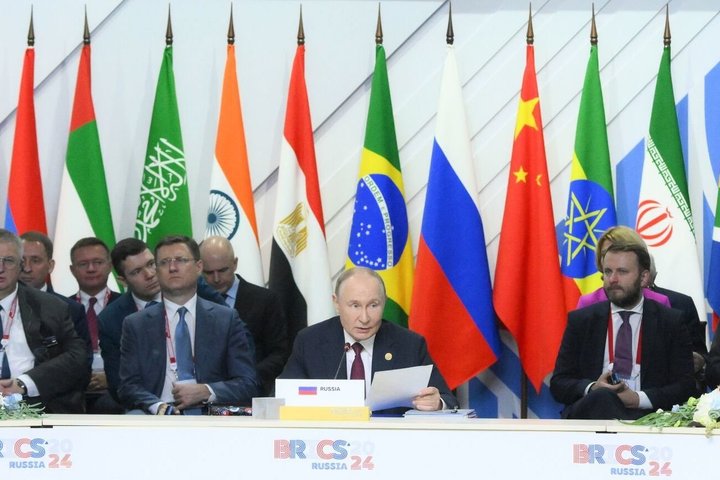
“A global crisis is coming, it is connected with the future decline of the US economy”
Most experts tend to agree with the Russian leader on another issue — the growing risks of a new global crisis. As Vladimir Putin stated, a significant crisis potential remains not only due to geopolitical tensions, he also cited other reasons: “The chronic growth of the debt burden in developed countries continues, the practice of unilateral sanctions, protectionism and unfair competition is expanding.”
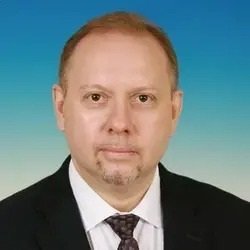
“There are no signs here, the global crisis has been going on for a long time, in many ways it is connected with both the special military operation and the Taiwan problem, that is, the failure to resolve these problems at the time led to a surge. I am not even talking about the situation in the Middle East. Now the world is balancing on the brink of a third world war. I agree with this a hundred per cent because if we do not take drastic measures to mitigate the situation now, then those whose nerves fail will be difficult to stop later,” noted Rustem Shayakhmetov.
Ilya Grashchenkov also believes that we have already been observing a global crisis in recent years, and in many ways it is connected with the high volatility of the global economy: “Yes, we see that large countries tend to accumulate debts, which then need to be repaid in an unimaginable way. Therefore, some kind of bubbles are provoked: sometimes mortgage, sometimes banking. This entire financial-monetarist economy is precisely what creates the main global risks, which then, among other things, are expressed in wars, crises, cataclysms and everything else that is a consequence, and perhaps sometimes the cause of these financial risks, so when Putin talks about a new global crisis, he is absolutely right.” The problem, according to the speaker, is only that the president is most likely talking about another round of such a crisis:
“Now we see armed conflicts all over the planet, how people are dying, and countries have stopped negotiating with each other. Western countries are moving from their previous policies: liberalism and democracy, on the contrary, to such a liberal dictatorship, which was expressed, for example, in strict restrictive measures during COVID and, as a result, remained in the practice of bureaucratic institutions. All this, of course, is a crisis that cannot be ignored, and here one can only agree with Putin.”
“Unfortunately, high-quality predictors of global crises have not yet been found in the economy. All markers and models that try to predict global crises work for several months or several years and then break down. We do not know when a crisis will occur, that is, we, predicting a crisis, will stop buying goods, start saving more, accordingly, production will stop and that very crisis will occur,” Ramil Khakimzyanov noted.
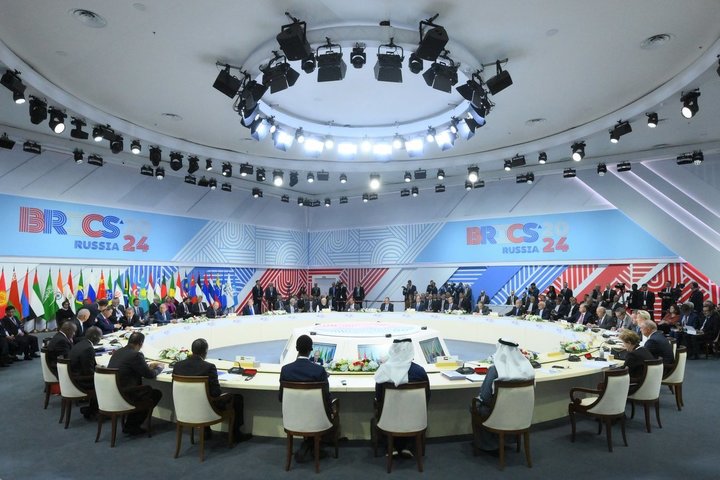
“If this platform exists, China will dominate it”
To support the national economies of the BRICS countries, Vladimir Putin proposed creating four platforms with different profiles. For example, the investment platform will help the development of the association's states: “We propose creating a new BRICS investment platform, which would become a powerful tool for supporting our national economies, and would also provide financial resources to the countries of the global South and East,” the Russian president said.
According to Oleg Matveychev, the creation of an investment platform is a “great idea”: “BRICS countries can offer investors real investment projects for earning money, and not like the West, which offers inflated paper financial instruments that will soon depreciate.” Other experts are more cautious in their assessments:
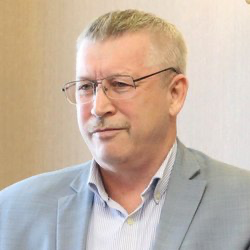
“The idea was certainly on the surface. If you create such a union, the first thing each country wants is for the other to invest in its economy and to invest itself. This is the longest-lasting union, based on real interest, and not on all these feelings of fraternal peoples and other spiritual and moral paradigms of relations. Therefore, the BRICS investment platform is needed. China could become one of the main investors, because it has a lot of unrealized money, and it could invest it in developing countries,” Ilya Grashchenkov believes.
According to him, such a platform could be used to develop investment solutions that would be useful for Russia. Many investors from China, India, Vietnam and other countries are now coming to our country, wanting to sell their goods here, but this requires investment in infrastructure and logistics. Russia itself could also invest in various enterprises abroad, especially given the labour crisis. “We see that many large companies are trying to move their factories to other countries, for example, to China, like some metallurgical industries. If this gives a good multimodal effect, why not? The platform is needed to understand where the interests of business, the population, the government and Russia's strategic goals meet, which can be realised if not today, then tomorrow. This is a comprehensive tool for studying this problem,” the interlocutor believes.
“An investment platform within BRICS will be like another tool in the world for potential investors to quickly find potential candidates for investment, and, accordingly, people attracting investment could quickly have access to capital. Previously, this function was performed exclusively by banks. They attracted deposits, and people who needed loans came to them and redistributed these funds. Now there are crowdfunding platforms, commodity exchanges, there are stock exchanges. And what kind of investment platform he is talking about now, we do not yet know, but it is definitely a good idea and will make someone's work easier. To say that this will be some kind of innovation — will not work. There are dozens, if not hundreds of so-called platforms for attracting investment funds in the world,” Ramil Khakimzyanov pointed out.
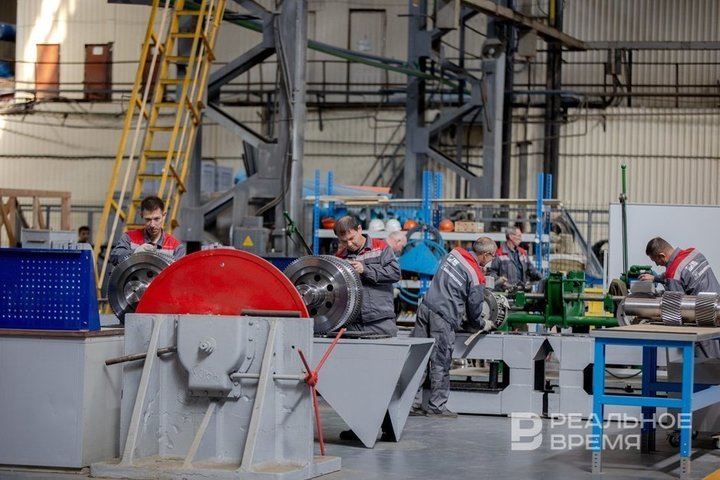
“Such an exchange will allow less speculative handling of grain prices”
The president of Russia also proposed creating a BRICS platform for precious metals, emphasising that our country is actively in favour of cooperation in the field of subsoil use. “We see the expediency of creating a separate BRICS platform for precious metals, as well as for diamonds. After all, this market is heavily regulated by various trade barriers bypassing the universal Kimberley Process certification scheme,” Putin noted.
Another proposal concerned the creation of a BRICS grain exchange, which could later be transformed into a commodity exchange. This would ensure food security in the association, Putin believes: “They proposed opening a BRICS grain exchange, which would facilitate the formation of fair and predictable price indicators for food and raw materials, taking into account its special role in ensuring food security.”
“The idea of a grain exchange in the context of the impending crisis and the West’s desire to speculate on food is an excellent idea. We must under no circumstances allow famine in any region of the world,” Oleg Matveychev pointed out.
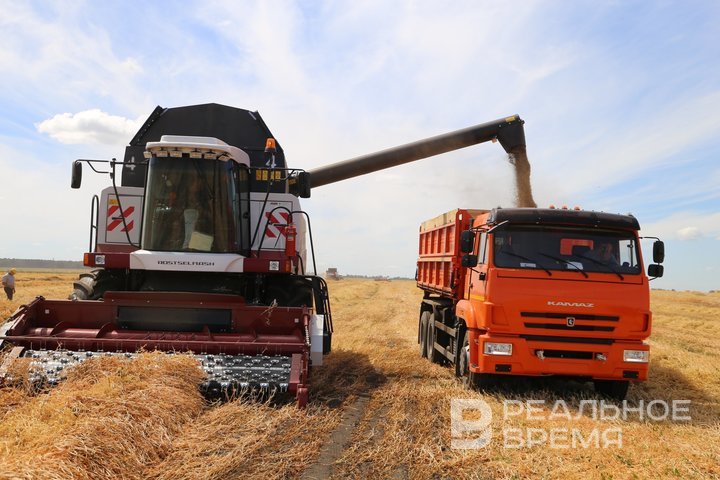
Ilya Grashchenkov also called this platform an important, relevant tool that could prove its effectiveness in the foreseeable future. Especially now, when the world is experiencing a certain grain deficit caused by local military conflicts in those territories that are traditionally among the largest producers of grain crops.
“If such an exchange is created, it will allow for less speculative grain price manipulation. Because now Europe actually determines prices and very often speculatively either collapses or raises them, simply playing on certain crisis phenomena. This possibility of speculation is a serious blow to food security throughout the world,” the expert believes.
“Currently, the main grain exchanges that exist are located in developed countries. First of all, in America. This is simply a desire to create a counterbalance, we are limited in many things, including dollar settlements. This will allow Russia to promote its goods in the markets, bypassing Western ones,” added Rustem Shayakhmetov.
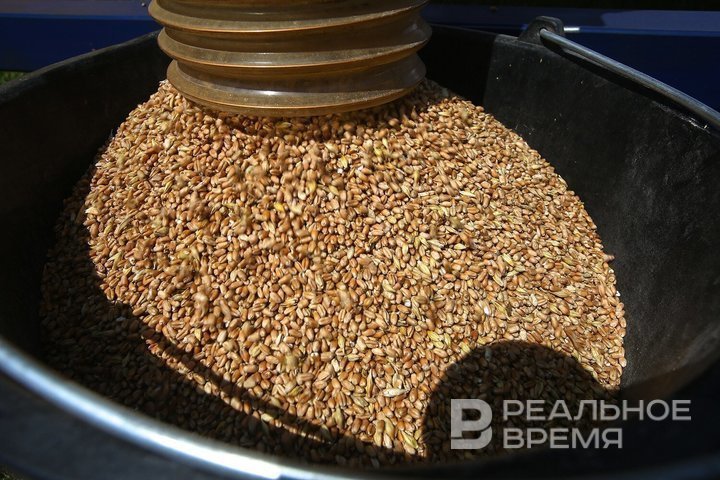
According to the experts interviewed, the grain exchange could attract to BRICS, if not new members of the association, then potential participants of this exchange. The platform would help to more fairly control prices and international grain supplies.
“To understand whether the BRICS grain exchange will be in demand or not, we need to understand who invests significant volumes in the world grain reserves. Yes, Russia is one of the countries, but there are also Ukraine and Australia. We do not know whether these countries will want to enter the exchange. And if there is some exchange in which there is a limited supply of commodity raw materials, then the price will most likely be higher. After all, we have commodity exchanges that have long been recognized in the world — and there will be a thousand sellers there, and on our commodity exchange there are only 100. And, most likely, where a thousand sellers work, the goods will be cheaper, the service, delivery, logistics will be better, and contracts will be concluded there faster. It seems to me that by creating a new exchange, we will lose in quality due to the limited number of sellers. But it can be done — it does not require significant investments, it is better to have,” believes Ramil Khakimzyanov.
The BRICS summit is a key event of Russia's chairmanship in the association, the meeting in Kazan is being held at the highest level. Meetings are organided in the BRICS+/Outreach formats: the first one implies interaction with states that are not members of the association, the second one — with neighbour countries of the members of the association. With the meeting in Kazan, Russia is summing up the results of its chairmanship in BRICS, and also strengthening bilateral contacts. Vladimir Putin held a number of personal meetings with world leaders, and next in line are talks with Turkish President Recep Tayyip Erdogan and the signing of a strategic partnership agreement with Iran.
